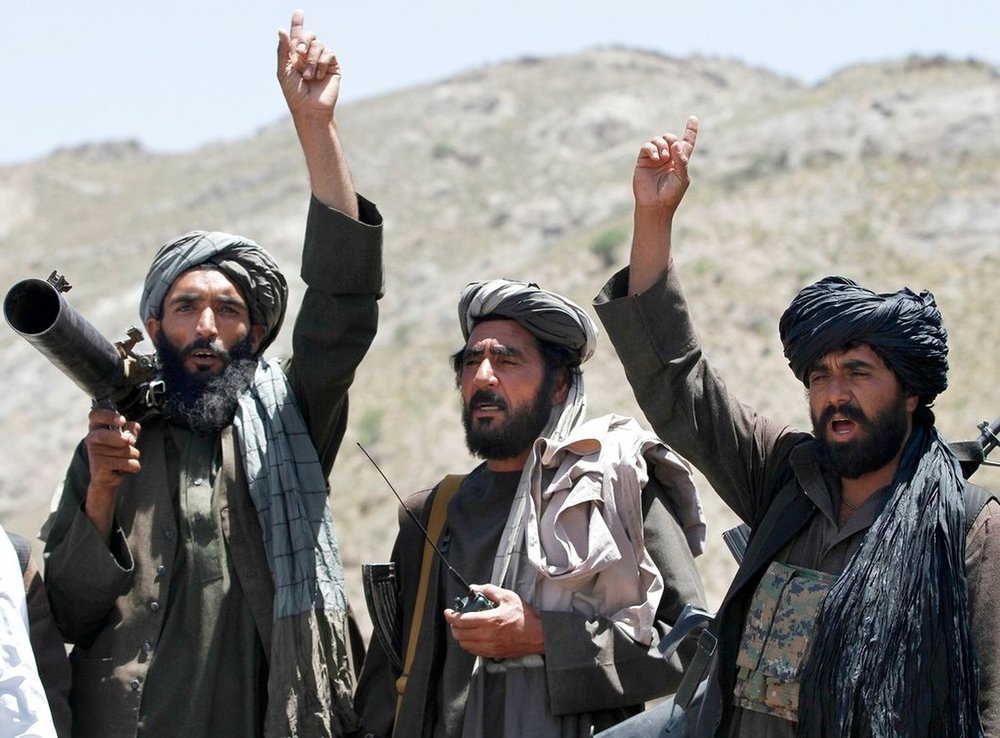Afghan Taliban says ‘post-occupation’ discussed with Iran

The Taliban discussed Afghanistan's "post-occupation situation" with Iran in their latest meeting, the group said Tuesday, as Tehran makes a more concerted and open push for peace ahead of a possible U.S. drawdown.
The remarks come after Iran confirmed on Monday that the Taliban had visited Tehran for a second round of talks in just a few days that are aimed at ending the 17-year conflict.
The Taliban delegation discussed with Iran "the post-occupation situation, restoration of peace and security in Afghanistan and the region", the group said in a statement posted on social media and emailed to journalists, according to AFP.
It signals a growing confidence among the Taliban for U.S. troops to pull out of Afghanistan, after U.S. officials last month told various media outlets that President Donald Trump had decided to slash the number of boots on the ground.
There have been reports in the past of talks between Iran and the Taliban.
Tehran's peace push will be viewed with concern by hawks in Washington, who fear that Trump's planned withdrawal of troops from Syria and Afghanistan will cede regional influence to Iran.
The Taliban also met with the United States, Pakistan and Saudi Arabia in the United Arab Emirates earlier in December as part of a flurry of diplomatic efforts to end the war.
But the Taliban refused to meet a delegation from Afghanistan. The group said on Saturday that its representatives would not meet "with those of the Kabul administration" at the next meeting expected to be held in Saudi Arabia later this month.
Iran's Deputy Foreign Minister Abbas Araqchi will travel to Afghanistan in the next two weeks, the foreign ministry said, without giving further details.
Iran and Afghanistan share a nearly 600-mile (960-kilometre) border, and have had a complex relationship in recent years.
Tehran has long supported its co-religionists in Afghanistan, the Shia Hazara minority, who were violently persecuted by the Taliban during its rule in the 1990s.
Iran worked alongside the United States and Western powers to help drive out the Taliban after the U.S.-led invasion in 2001.
Supreme National Security Council Secretary Ali Shamkhani said last Wednesday during a visit to Kabul that Tehran has been holding talks with the Taliban with the knowledge of the Afghan government.
The talks were held “to help curb the security problems in Afghanistan,” Shamkhani told Hamdullah Mohib, the Afghan president’s national security advisor.
Addressing the Geneva Conference on Afghanistan on November 28, Iranian Foreign Minister Mohammad Javad Zarif called on the international community to facilitate “inclusive” dialogue between the Taliban and the Afghan government in a bid to restore peace to the war-torn country.
Zarif, who in a previous capacity famously helped with the establishment of a post-invasion government in Afghanistan in the Bonn conference in 2001, said in the Geneva conference that there was no military solution to Afghanistan and that the time had come for national reconciliation.
During his trip to Afghanistan, Shamkhani also met with Chief Executive Abdullah Abdullah, saying Tehran backs the peace process with an “intra-Afghan approach” and views any move other than this as a threat to the Afghan security.
For his part, Abdullah said his country is facing worrying security challenges and this entails constructive cooperation between all neighbors for securing Afghanistan.
SP/PA
